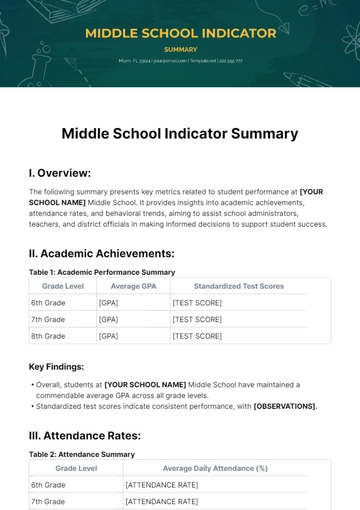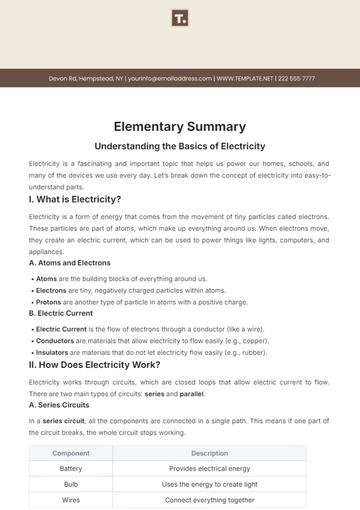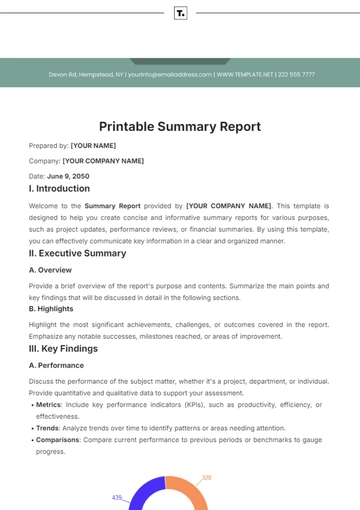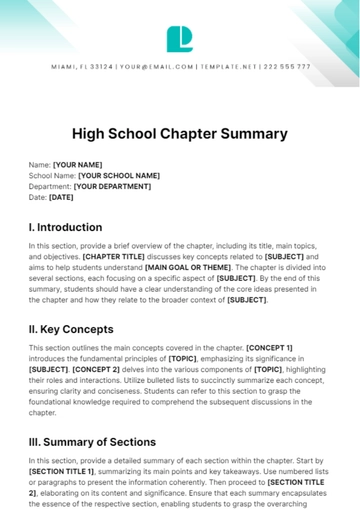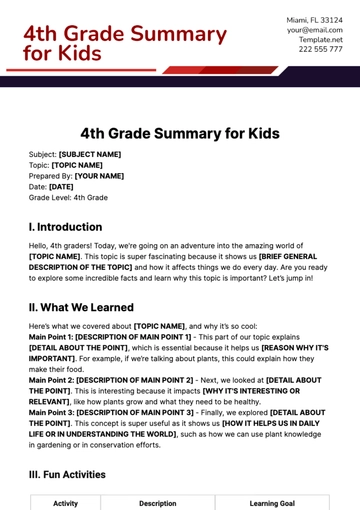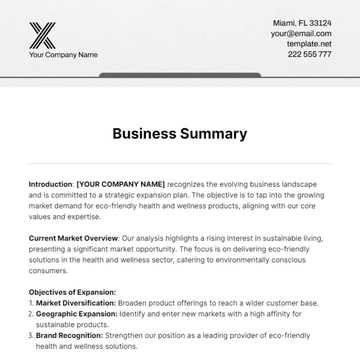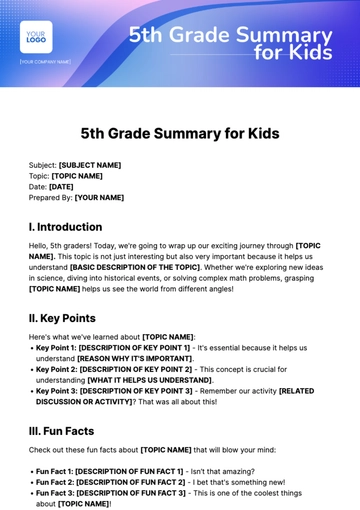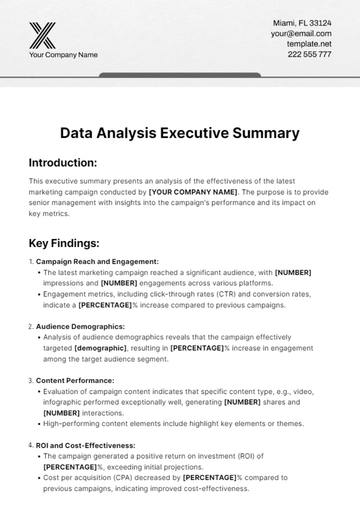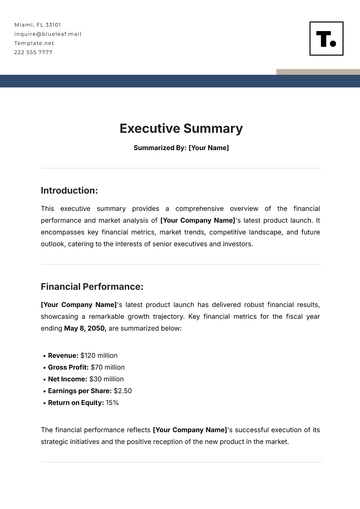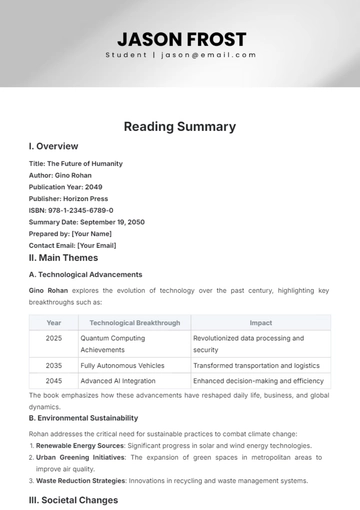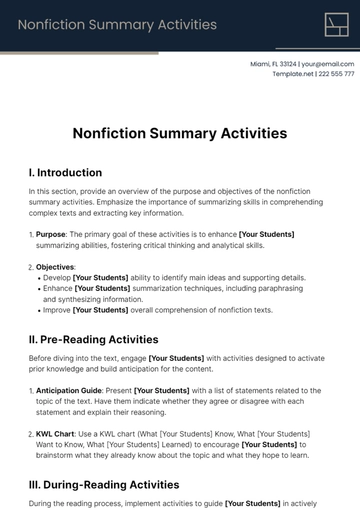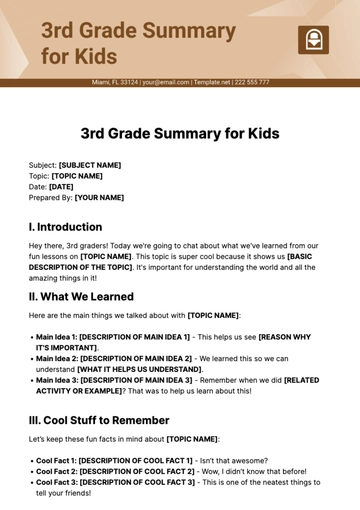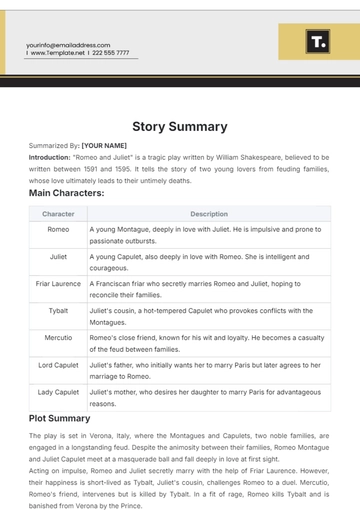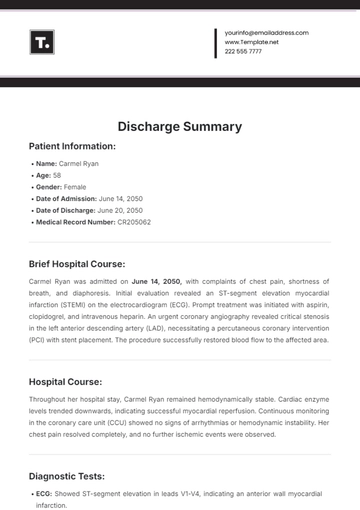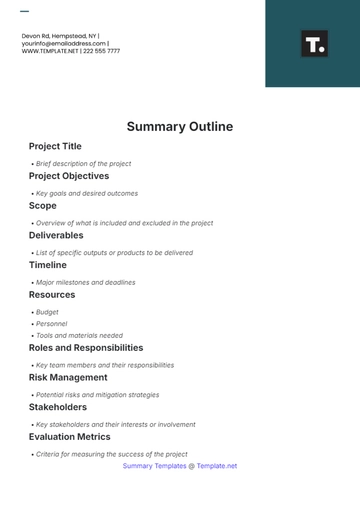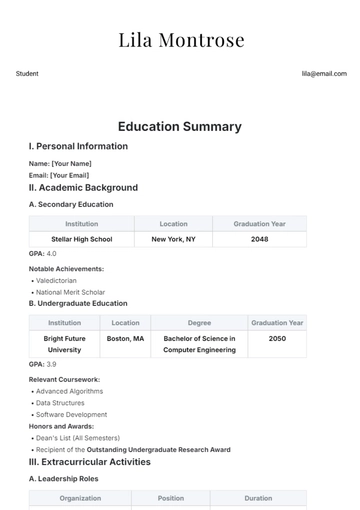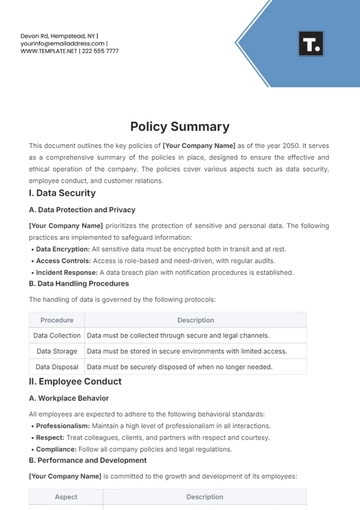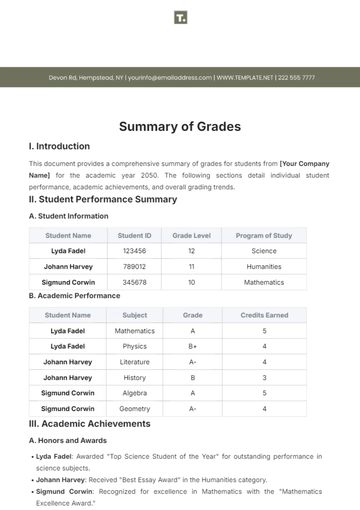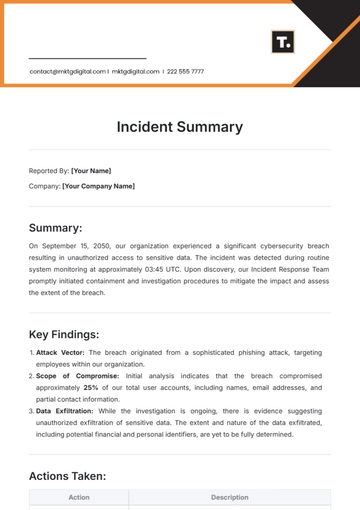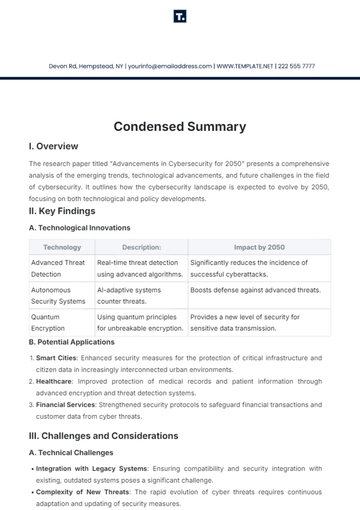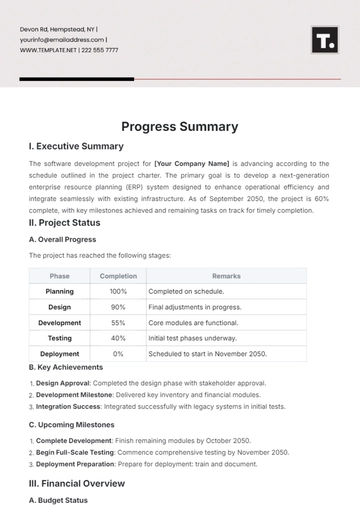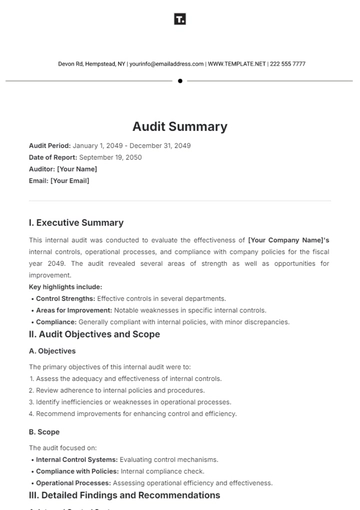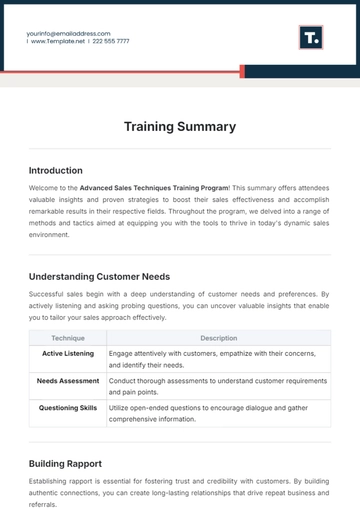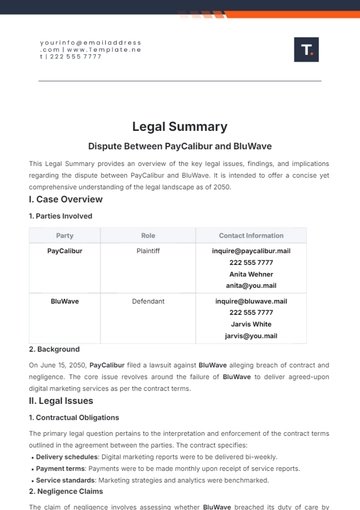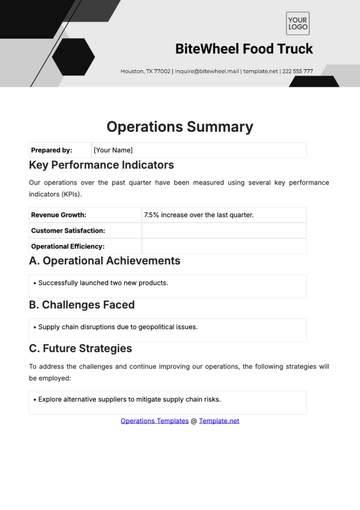Free Therapy Treatment Summary
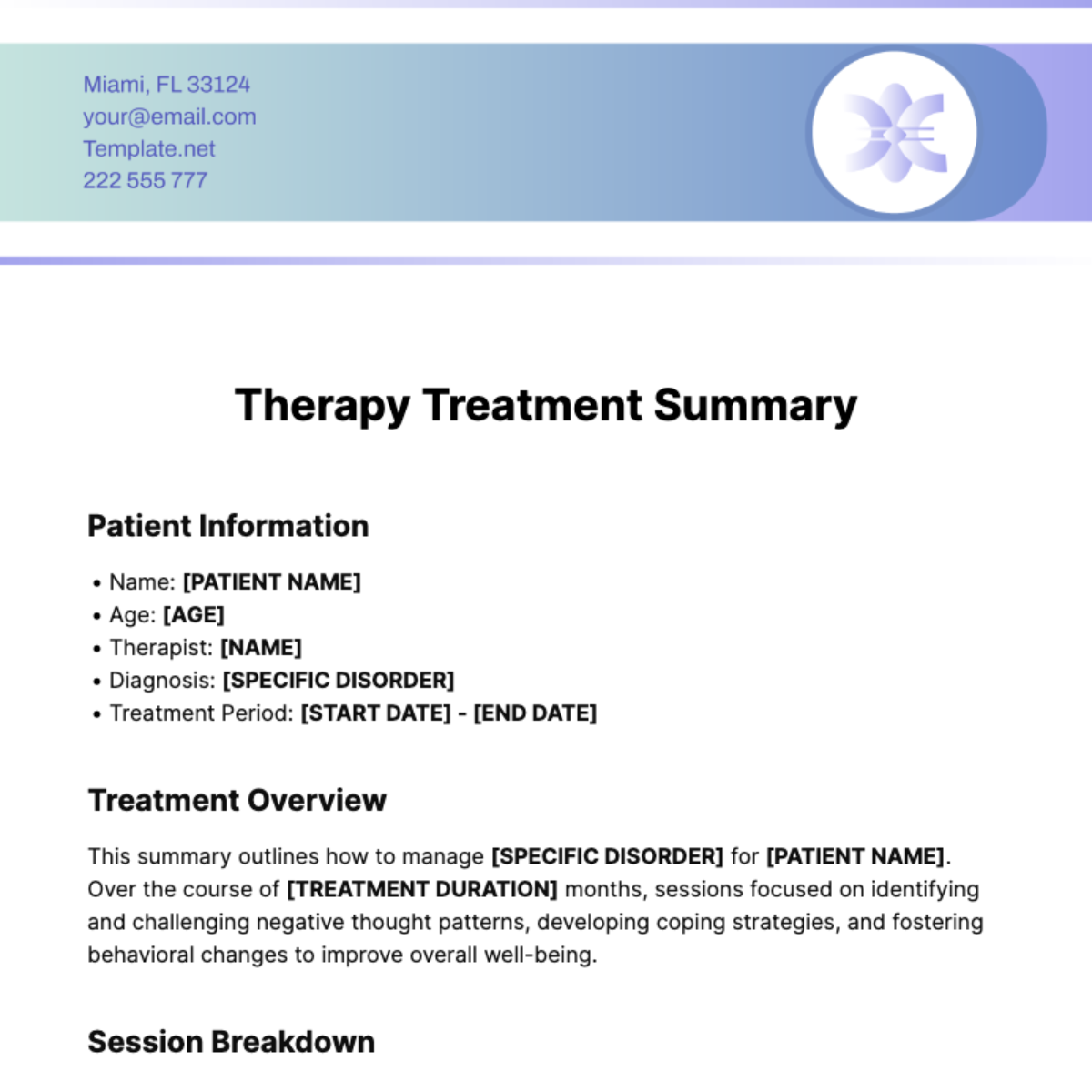
Patient Information
Name: [PATIENT NAME]
Age: [AGE]
Therapist: [NAME]
Diagnosis: [SPECIFIC DISORDER]
Treatment Period: [START DATE] - [END DATE]
Treatment Overview
This summary outlines how to manage [SPECIFIC DISORDER] for [PATIENT NAME]. Over the course of [TREATMENT DURATION] months, sessions focused on identifying and challenging negative thought patterns, developing coping strategies, and fostering behavioral changes to improve overall well-being.
Session Breakdown
Session # | Date | Focus Area | Key Outcomes |
1 | [DATE] | Introduction to CBT principles | Identified core negative beliefs |
2 | [DATE] | Identifying negative thought patterns | Mapped thought patterns related to disorder |
3 | [DATE] | Introduction to cognitive restructuring | Practiced reframing negative thoughts |
4 | [DATE] | Developing coping strategies | Created personalized coping strategy plan |
Final | [DATE] | Review of progress and future planning | Established a maintenance plan |
Progress and Outcomes
Over the treatment period, [PATIENT NAME] demonstrated significant progress in managing [SPECIFIC DISORDER]. Key achievements include:
Reduced Frequency of Negative Thoughts: Through cognitive restructuring, there was a noticeable decrease in the frequency and intensity of negative thought patterns.
Improved Coping Mechanisms: Successfully applied coping strategies during stressful situations, showing increased resilience and emotional regulation.
Behavioral Changes: Observable changes in behavior reflecting increased engagement in previously avoided activities and improved social interactions.
Patient Feedback
[PATIENT NAME] reported feeling [POSITIVE/NEGATIVE] changes in their overall mood and daily functioning. Specific feedback highlighted an increased awareness of thought patterns and a greater sense of control over emotional responses.
Therapist's Observations
Throughout the sessions, it was evident that [PATIENT NAME] became more adept at identifying triggers and employing strategies to manage responses. The commitment to the process and willingness to challenge personal beliefs were key factors in their progress.
Recommendations for Continued Care
Maintenance Sessions: Bi-monthly check-ins to monitor stability and address any emerging challenges.
Self-Monitoring: Encourage the use of a journal to track thoughts, emotions, and coping strategy effectiveness.
Support Systems: Continue building and utilizing support systems for additional emotional and practical support.
Conclusion
[PATIENT NAME]'s engagement for managing [SPECIFIC DISORDER] has led to meaningful improvements in thought patterns, emotional regulation, and daily functioning. Maintaining the gains achieved during therapy and remaining vigilant for signs of relapse are crucial for long-term management. Further support and occasional therapy sessions are recommended to ensure continued progress and well-being.
Summarized By: [YOUR NAME]
- 100% Customizable, free editor
- Access 1 Million+ Templates, photo’s & graphics
- Download or share as a template
- Click and replace photos, graphics, text, backgrounds
- Resize, crop, AI write & more
- Access advanced editor
Discover the Therapy Treatment Summary Template, exclusively on Template.net. Crafted for professionals, this editable and customizable template simplifies treatment documentation. Seamlessly personalize each aspect with ease using our Ai Editor Tool. Elevate your practice efficiency and organization today with this essential resource.
